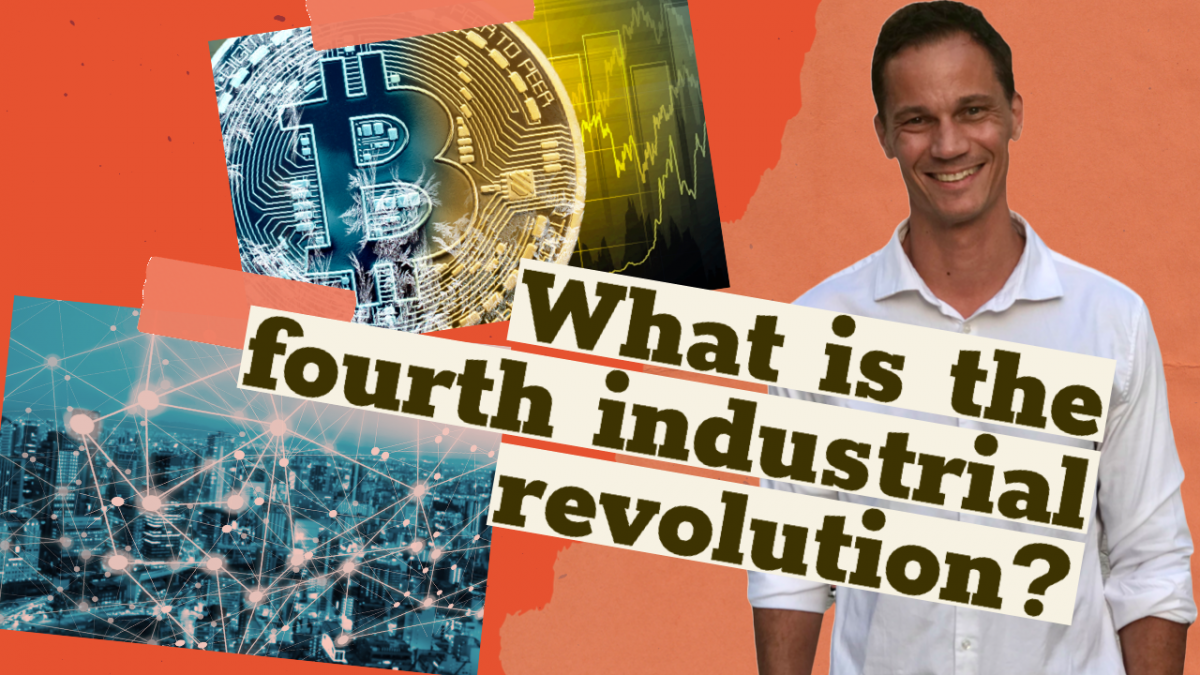In less than 300 years our society has evolved from the steam engine to smart household gadgets and robots doing our work. Each industrial era is better than the previous and develops from the need to advance businesses and society. What’s the fourth industrial revolution good for?
We have gone through three industrial revolutions; each lasting about 100 years. The first industrial revolution started in 1784 with the development of steam, water, mechanical production equipment. About 100 years later society was greatly enhanced with the use of electricity and in late 1960s electronics, IT and automated systems reshaped society.
Each industrial era comes from the necessity to advance society and the fourth industrial revolution (industry 4.0) is the most advanced and quickest of all previous industrial revolutions. In the last twenty years new disruptive digital technologies such as, artificial intelligence, big data, blockchain technology, cloud computing and fintech have transformed our existence. The speed of the fourth industrial revolution makes it difficult to see clearly what the future will look like. However, there are key themes that are important to be aware of.
Industry 4.0 is generally about optimization of production and creating a closer connection between manufacturers and customers. Researchers predict that blockchain technology will change almost all aspects of our lives, including financial markets, business operations and governance, health care, government operations and public administration. Blockchains can be effectively used for registration of births and title deeds, security trading, insurance services, health care, accounting, auditing, and supply chain networks. One major component of blockchains is that they eliminate the ‘trusted third party’ such as banks or other central authorities involved in transactions. This will affect businesses that involve the middleman.
Moreover, things need to go quicker now days and industry 4.0 is all for optimization and customization. Technological innovations in the fourth industrial revolution enhances the products and services that were developed in the third industrial revolution. The internet of things is a term to describe the link between a physical product and its connection to the internet. Information alone is not enough, and the information age is enhanced by technologies in the fourth industrial revolution. Customers demand customization, and the fourth industrial revolution is about mixing and matching technologies that increase productivity and meet customer needs.
The sky is the limit with technology. Today payments are quickly and easily made through fintech payment apps that use blockchain technology, our lawns are cut by self-driving lawn movers and automated cars can drive us to work. Robots with AI technology are used in production. Google assistants order products for us and our smart phones and watches are almost limitless in how they impact our lives. Cyber physical system that uses a combination of technologies such as sensors and data are used to enhance products. One example is the fire alarm that start to ring when a change takes place in the environment.
There are a few fears within the fourth industrial revolution that companies and societies need to tackle. Security challenges are apparent as we use big data that is commonly stored and transferred on the cloud. Companies and organizations need to consider privacy issues regarding how they use and store customer data. Decentralized blockchain technology has proven to be a more secure database than traditional databases and data can now be stored on the cloud in a decentralized fashion. This increases security as big data is not stored on one server but on a cloud that is connected to hundreds or thousands of nodes.
As society evolve in digitization, we also need to evolve. The adoption of new technologies is likely to affect the labor market as robots and technological innovations are used instead of humans to perform services and production tasks. The need to solve simpler tasks is likely to go down and demand for specialized knowledge and high-level jobs will increase.
Grandma needs to learn to use the smart phone.
It’s the same for business. It is the nimblest company that will survive in the fourth industrial revolution. Companies that are brave enough to question current ways of doing business and embrace new technologies will survive. They may even have to change their business model to meet customer needs. Here’s a business idea for you. Take accountants for example. Their way of doing business can be dramatically improved if they used blockchain technology instead of traditional accounting methods. Blockchain technology would make their business more secure, trustworthy, and efficient.
Being in tune with societal developments is crucial for delivering business practices in the absolute forefront. There are huge economic rewards for companies that are successful in adapting to the current industrial phase. But it takes guts to evolve. Daring to use and merge different technologies with services or for production is necessary to stay ahead in industry 4.0.


